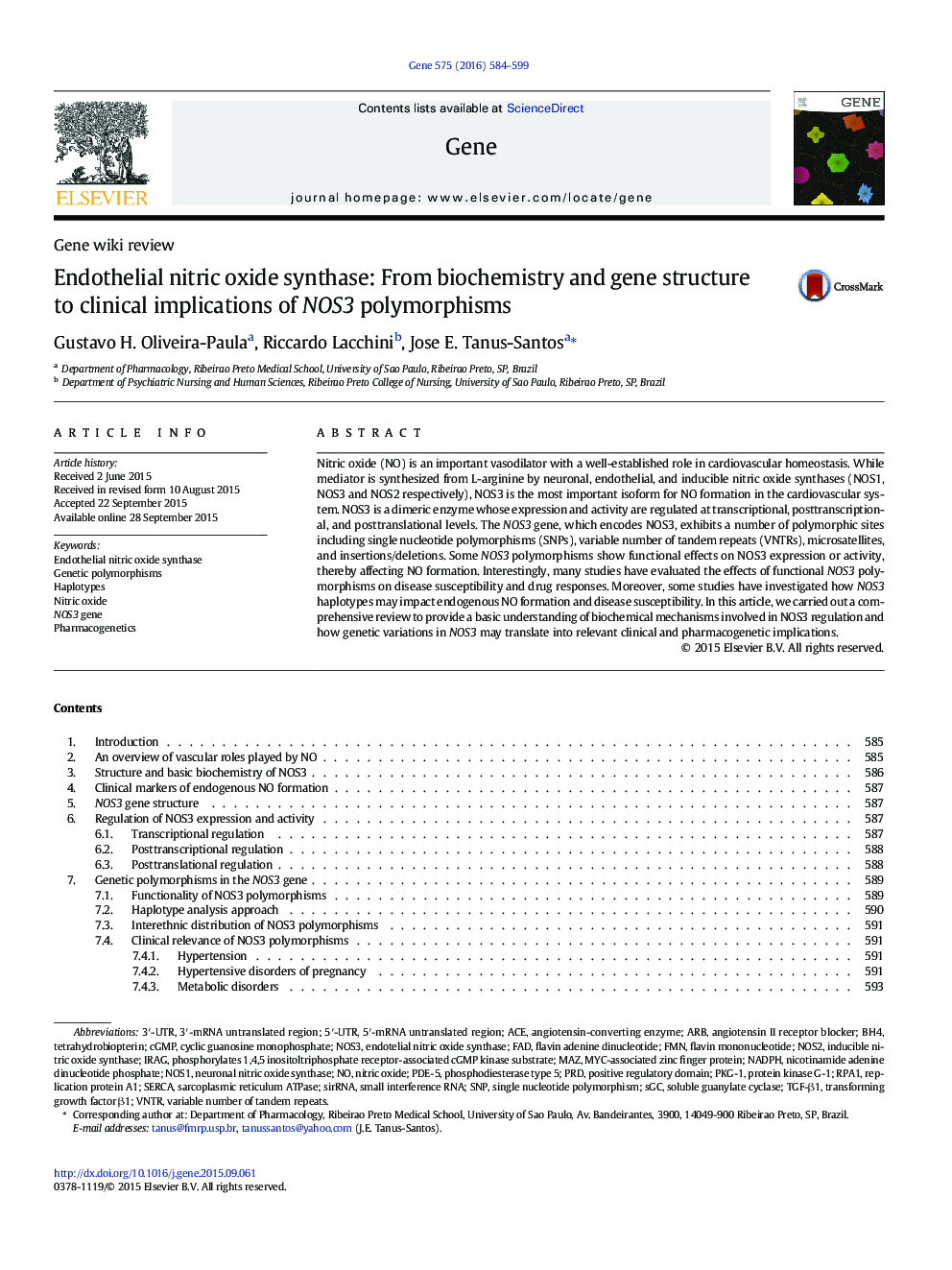| Article ID | Journal | Published Year | Pages | File Type |
|---|---|---|---|---|
| 2815450 | Gene | 2016 | 16 Pages |
•Nitric oxide (NO) is very important in physiology and pathophysiology.•In the cardiovascular system, most NO is synthesized by endothelial NO synthase (NOS3).•The NOS3 gene exhibits a number of polymorphic sites.•Some NOS3 polymorphisms have functional and clinical implications.•NOS3 polymorphisms affect disease susceptibility and drug responses.
ABSTRACTNitric oxide (NO) is an important vasodilator with a well-established role in cardiovascular homeostasis. While mediator is synthesized from L-arginine by neuronal, endothelial, and inducible nitric oxide synthases (NOS1, NOS3 and NOS2 respectively), NOS3 is the most important isoform for NO formation in the cardiovascular system. NOS3 is a dimeric enzyme whose expression and activity are regulated at transcriptional, posttranscriptional, and posttranslational levels. The NOS3 gene, which encodes NOS3, exhibits a number of polymorphic sites including single nucleotide polymorphisms (SNPs), variable number of tandem repeats (VNTRs), microsatellites, and insertions/deletions. Some NOS3 polymorphisms show functional effects on NOS3 expression or activity, thereby affecting NO formation. Interestingly, many studies have evaluated the effects of functional NOS3 polymorphisms on disease susceptibility and drug responses. Moreover, some studies have investigated how NOS3 haplotypes may impact endogenous NO formation and disease susceptibility. In this article, we carried out a comprehensive review to provide a basic understanding of biochemical mechanisms involved in NOS3 regulation and how genetic variations in NOS3 may translate into relevant clinical and pharmacogenetic implications.
